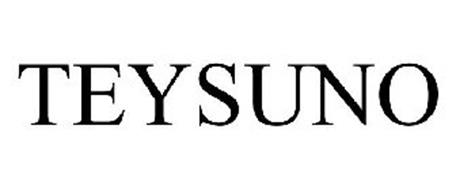Music has long been a go-to tool for improving focus and boosting mood at work. Whether it’s instrumental jazz, nature sounds, or an upbeat pop playlist, people often believe the right soundtrack can maximise efficiency. But are all types of music equally beneficial, or could your favourite playlist be making you less productive?
A new study finally offers some clarity, revealing that only specific types of music truly enhance focus and cognitive performance, while others may be more of a distraction than a productivity booster.
For years, scientists have explored the effects of background music on work performance, but the results have been mixed. Some research suggests that music enhances memory and concentration. At the same time, other studies indicate that certain types of sound especially those with lyrics or complex rhythms can make it harder to focus.
To dig deeper, a recent study published in PLOS One investigated how different kinds of background audio influence focus and mental sharpness. The researchers aimed to uncover whether popular “deep focus” playlists, office noise, or mainstream pop hits could truly help people perform mentally demanding tasks.
Their findings? Not all music Is created equal when it comes to productivity. While certain tracks boosted focus and mood, others had little to no effect or even impaired performance.
The study analysed the effects of four types of background audio:
1. Workflow Music: Specially designed instrumental tracks with moderate tempos, steady beats, and simple melodies.
2. Deep Focus Music: Slower, minimalist tunes are often recommended for concentration.
3. Pop Hits: Popular songs with lyrics and complex compositions.
4. Office Noise: Simulated background sounds like distant chatter and keyboard typing.
Participants listened to one of these audio types while completing a selective attention test that measured their processing speed and ability to filter distractions.
Workflow music significantly improved performance. Listeners completed tasks faster and more accurately, with a 76% mood boost far higher than any other group.
Deep-focus music, though pleasant, didn’t enhance productivity. It lacked the rhythmic structure needed to maintain high engagement.
Pop hits had no measurable cognitive benefits. The lyrics and shifting rhythms appeared to be more distracting than helpful.
Office noise had little impact. While not actively harmful, it didn’t improve focus or mood.
These results suggest that not all “focus music” is actually effective and that the right type of music could make a big difference in your work performance.
Why Does Workflow Music Work Best?
The secret behind workflow music’s success lies in its balance of stimulation and simplicity. Unlike pop songs or deep-focus tracks, workflow music is structured to keep the brain engaged without overwhelming it.
Key Features of Effective Focus Music:
• Moderate Tempo: Not too fast, not too slow just enough to keep energy levels steady.
• Steady Beat: A rhythmic structure that supports concentration.
• Simple Melodies: No sudden changes or overly complex compositions.
• No Lyrics: Words can pull attention away from the task at hand.
This combination appears to create the ideal mental state for productivity, keeping workers engaged while preventing distractions.
One of the most surprising findings from the study was the strong link between mood and work performance. Participants who listened to workflow music not only performed better but also reported feeling happier and more motivated.
This aligns with the arousal-mood theory, which suggests that when music enhances positive emotions, it can also improve cognitive function. Feeling good, in other words, can directly contribute to working efficiently.
Interestingly, the study also found that people who are more emotionally sensitive to music (those who experience stronger reactions to sound) tend to benefit the most from productivity-enhancing tunes.
If you’ve ever felt more distracted than productive while listening to music, your playlist might be the problem. Here’s why some types of music fail to boost focus:
1. Songs with Lyrics Steal Your Attention: Your brain naturally processes words, even when you’re not actively trying to listen. This means that music with lyrics competes for cognitive resources, making it harder to focus on reading, writing, or problem-solving tasks.
2. Complex Compositions Overload the Brain: Orchestral music, jazz, or experimental electronic tracks with frequent tempo changes can be too mentally engaging, pulling focus away from work instead of enhancing it.
3. Deep Focus Playlists May Be Too Slow: Minimalist, ambient music is often marketed as “ideal for concentration,” but its lack of rhythm and structure can sometimes make it too passive, failing to provide the stimulation needed for peak focus.
4. Office Noise Doesn’t Always Help: Some people thrive in a bustling environment, but for most, background office sounds provide little cognitive benefit and can sometimes be distracting rather than helpful.
Want to create your ultimate productivity-boosting playlist? Follow these tips:
Choose instrumental music with a moderate tempo (around 60-100 beats per minute).
Look for tracks with a steady rhythm and simple structure.
Avoid lyrics, abrupt tempo changes, or overly complex arrangements.
Test different styles, some may work better for you than others.
Consider specially curated “workflow music” instead of generic focus playlists.
If you prefer streaming services, look for playlists labelled “brain focus,” “cognitive enhancer,” or “workflow music” rather than generic deep-focus tracks.
As remote work becomes more common and people seek ways to optimize their productivity, understanding how sound affects focus is more important than ever.
This study highlights the importance of choosing the right background music, not just any playlist that claims to boost concentration. By selecting music with the right balance of engagement and simplicity, workers can improve their efficiency, mood, and overall well-being.
So before you hit play on your next work session, ask yourself: Is your playlist helping you focus, or is it secretly slowing you down? The right music might be the productivity hack you didn’t know you needed

 Workers can improve their efficiency, mood, and overall well-being by selecting music with the right balance of engagement and simplicity.
Workers can improve their efficiency, mood, and overall well-being by selecting music with the right balance of engagement and simplicity.




















.jpeg)


.jpeg)



.jpeg)
.jpeg)






.jpeg)





